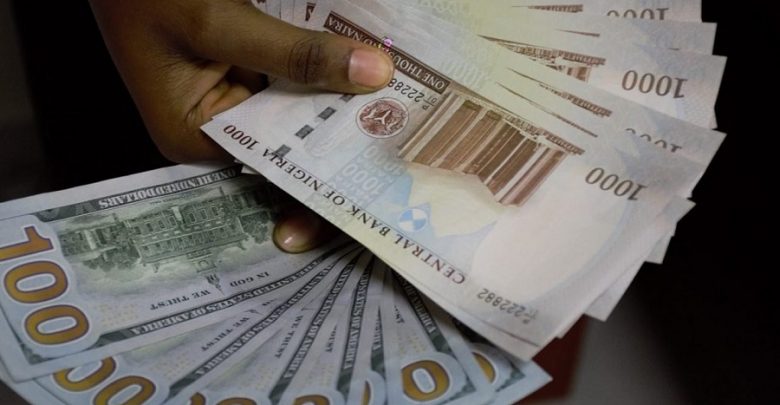Here's why the naira continues to weaken

The inflation rate in Nigeria currently
stands at 20.77%, a 17-year high and an all-time high since
2005. The weakening economy and the global oil crises are the main causes of
this spike. To combat the escalating cost of products and services, the CBN
responded by increasing the benchmark interest rate to 15.5% for the third time
in a row, according to reports.
The steady decline in the Naira's value in the markets
has increased investors' level of uncertainty as it has become
increasingly challenging to ascertain the actual exchange rate against other
currencies, especially the US dollar.
Since July 2021, when the central bank stopped selling
foreign currency to Bureau De Change businesses operating in the nation, the
black market exchange rate has been unstable and inconsistently priced. At the
time, the bank attributed the prohibition to the alleged speculative practices
of the BDC owners, a decision that drastically decreased the volume of FX
investors can buy in the black market.
The Nigerian black market for currency exchange
encourages volatility across exchange rates, which mostly creates trading
advantages for some traders. This in turn creates a ripple market across the
Nigerian economy, affecting all sectors.
Naira is presently selling as high as N760/$1
depending on the region and seller, down from an average of N565/$1 reported as
of December 31, 2021.
The CBN's official naira
exchange rate has significantly declined against the US dollar
so far this year. On Friday, it closed at N441.67/$1, down from an average of
N416/$1 seen the year before.
This is a function of the shortage of FX supply,
which has prevented the CBN from intervening in the markets due to factors such
as declining inflows, a dearth of remittances from major players like the NNPC.
Despite an increase in interest rates by the Central
Bank of Nigeria, the ongoing FX shortage in the nation has caused the naira to
lose strength versus the US dollar. Increased demand also results from people
trying to protect their savings from the growing inflation rate by investing in
foreign currencies.
The country's foreign exchange reserves have also
decreased by around $2.8 billion since January as a result of the Central
Bank's ongoing interventions in the Investors and Exporters window. The reserve
level was $37.68 billion as of Thursday, October 20, 2022, dropping further
below the $40 billion, according to Nairametrics.
Why
is the Naira depreciating?
The demand for Nigeria's exports is one of the most
prominent factors for the depreciation of the naira. Nigeria's export industry
has been a notable aspect since the 1960s, which has resulted in the
predominance of a sole export commodity—oil. With its growing manufacturing
sector, Nigeria was once thought to have an export-driven economy. According to
experts, the nation has experienced a negative balance of payments for ten
quarters in a row, dating back to the first quarter of 2019. This indicates a
current account deficit, which has caused the currency to depreciate. The
governor of the Central Bank of Nigeria, Godwin Emefiele, explained why the
Naira was devalued.
The decline in crude oil revenues and the withdrawal
of foreign portfolio investors, he said, had a substantial impact on the flow
of foreign currency into the nation because the Nigerian market is dependent on
oil exports.
The CBN asserts that it is dedicated to gradually
liberalizing the forex market in order to smooth out exchange rate volatility
and address the impact of swift fluctuations in the exchange rate on macro-economic
variables as a result of the nature of the lower dollar profits.


Be the first to comment!
You must login to comment